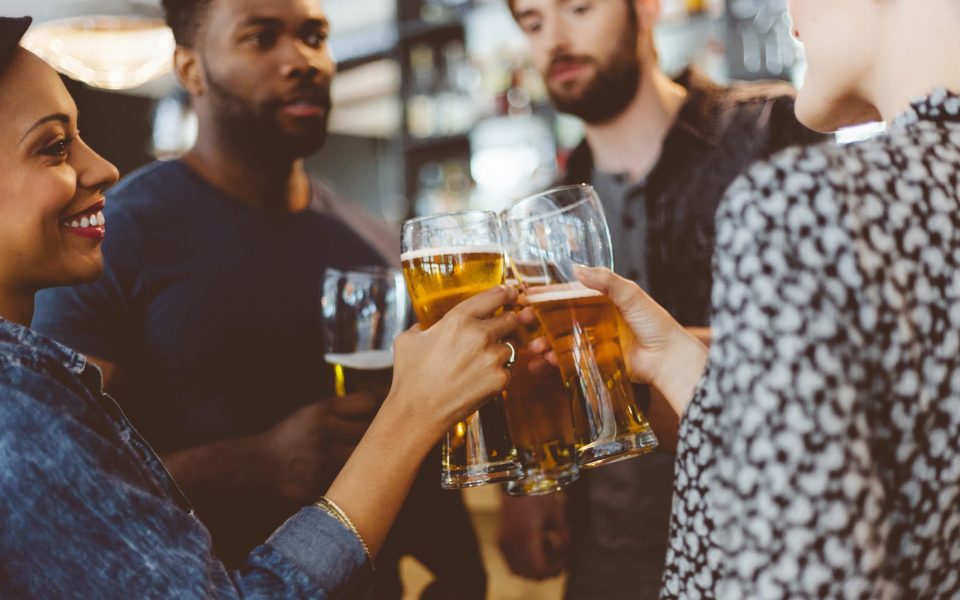
After a night of $1 beers at a New Orleans-themed restaurant, Jim Jacobs went home and got on his laptop.
“I booked airfare that night for a guys’ trip to New Orleans,” said the Philadelphia resident. What Jacobs didn’t think about was the fact that he’d just gotten laid off from his job. “It was a phenomenal idea,” he said jokingly.
Jacobs isn’t the only one who has splurged impulsively after a night out. According to a February 2018 survey of 2,001 U.S. adults by comparison website Finder, 46% of adults who drink alcohol admit to shopping under the influence.
If you’ve gotten loose with your credit card after a few cocktails, these tips might help you save your budget.
1. Don’t save your credit card information online
It’s never been easier to buy stuff online, whether by phone or computer. If you save your credit card information on a website, you can make a purchase with a few easy clicks. Because you’re physically removed from the transaction, you might not feel like you’re spending money. But your credit statement will tell a different story.
If you’re prone to one-click shopping, try deleting your credit card information from your favorite sites. That way, you’ll have to enter all your details before hitting the “buy” button. By the time you find your credit card and type in the information, you might realize you’d be better off saving your hard-earned cash.
2. Use an app to block shopping sites
Although most drunken shoppers surveyed were ordering late-night delivery — 60.83% were buying food, according to the Finder survey — 25.09% were buying clothes and shoes. And some go even farther afield, like Shaun Dickson after a night of partying in college.
“I ended up ordering 200 rolls of toilet paper,” said Dickson. “It seemed like a good idea at the time. What made it even better is that I didn’t get it delivered to my own address, but ordered it to my parents’! I found out about my drunken purchase when my mom texted me asking, ‘Why has all this toilet roll turned up at my house? I look ridiculous!’”
Dickson might have been able to avoid his toilet-paper spending spree if he had used a website-blocking app on his computer. SelfControl (for Macs) and Freedom (for PCs) can stop your spending by blocking shopping sites for a set period of time.
Finder’s own Icebox plug-in for the Chrome browser will replace the “buy” button on a website with one that says “put it on ice.” By putting your purchase on ice, you’ll have to wait a preset period of time before buying.
When you wake up the next morning, you might no longer feel compelled to buy a lifetime’s supply of bathroom products or a plane ticket to the Big Easy. In fact, you might have forgotten all about it.
3. Set a budget and stick to it
Besides blocking your favorite sites, you also could take preemptive measures by setting a budget before you head out for the night. Keep a limit in your mind by figuring out how much you want to spend. That way, you won’t feel overly restricted financially and fall off the budgeting wagon.
If you’re still concerned you’ll overspend, try leaving your credit cards at home and carry cash.
You’ll have to be careful, though, when you return home and have access to your card and the internet. But if you’ve deleted your credit card information from your favorite shopping sites and downloaded an app or extension to curb your shopping habits, you’ll be less likely to go over the limit.
Don’t let a night out derail your spending plan
Although random intoxicated purchases make for a funny morning-after story, you probably won’t laugh at their impact on your finances.
If you’re on a tight budget, splurging under the influence could leave you scrambling to cover rent or pay your student loans.
And if you’re saving to buy a house or travel the world, impulse shopping could mean your dreams keep getting postponed.
Whatever your financial goals, you set them for a reason. So if you find yourself on Amazon at 2 a.m. after a night out, close your computer, drink a glass of water, and go to bed.
























